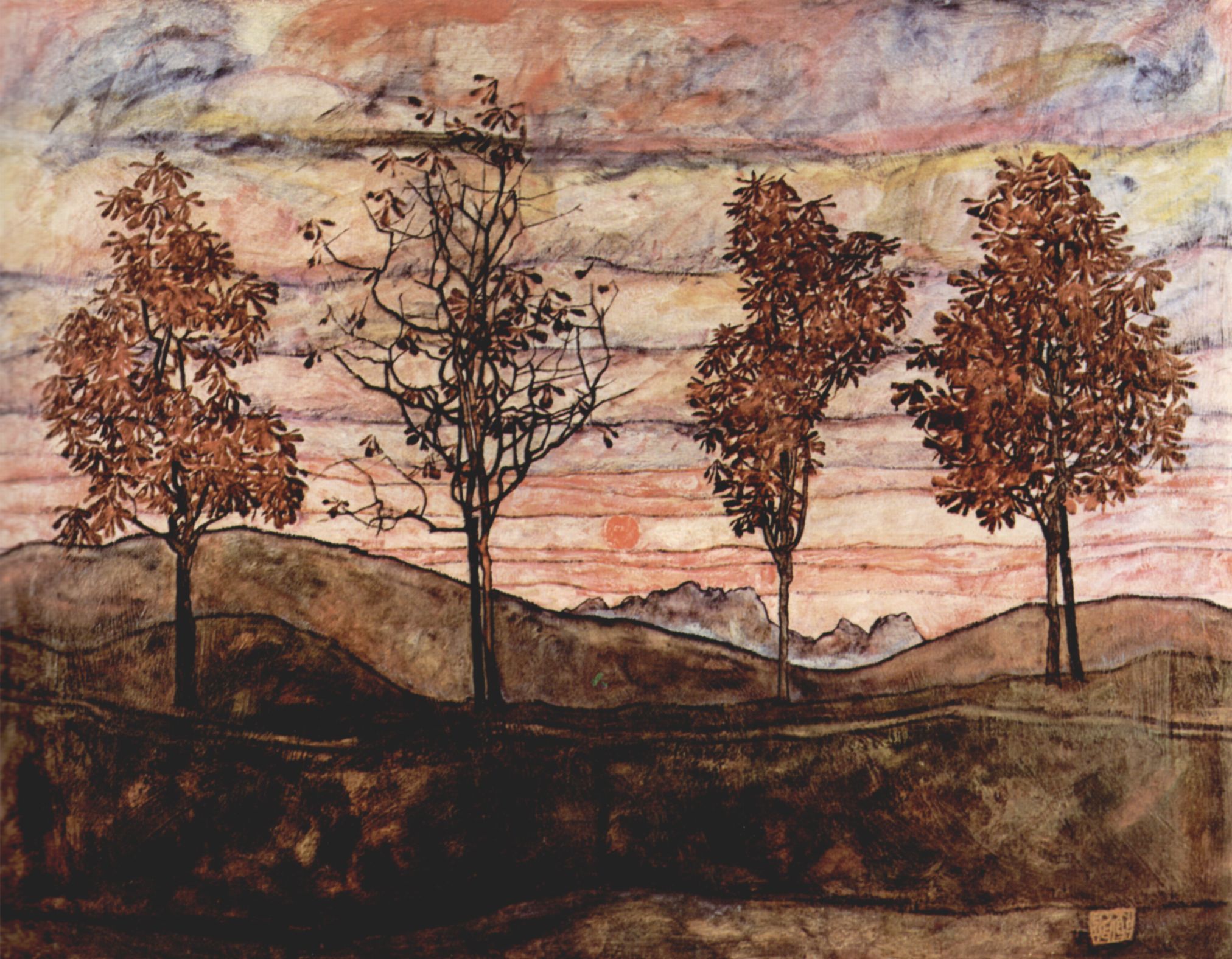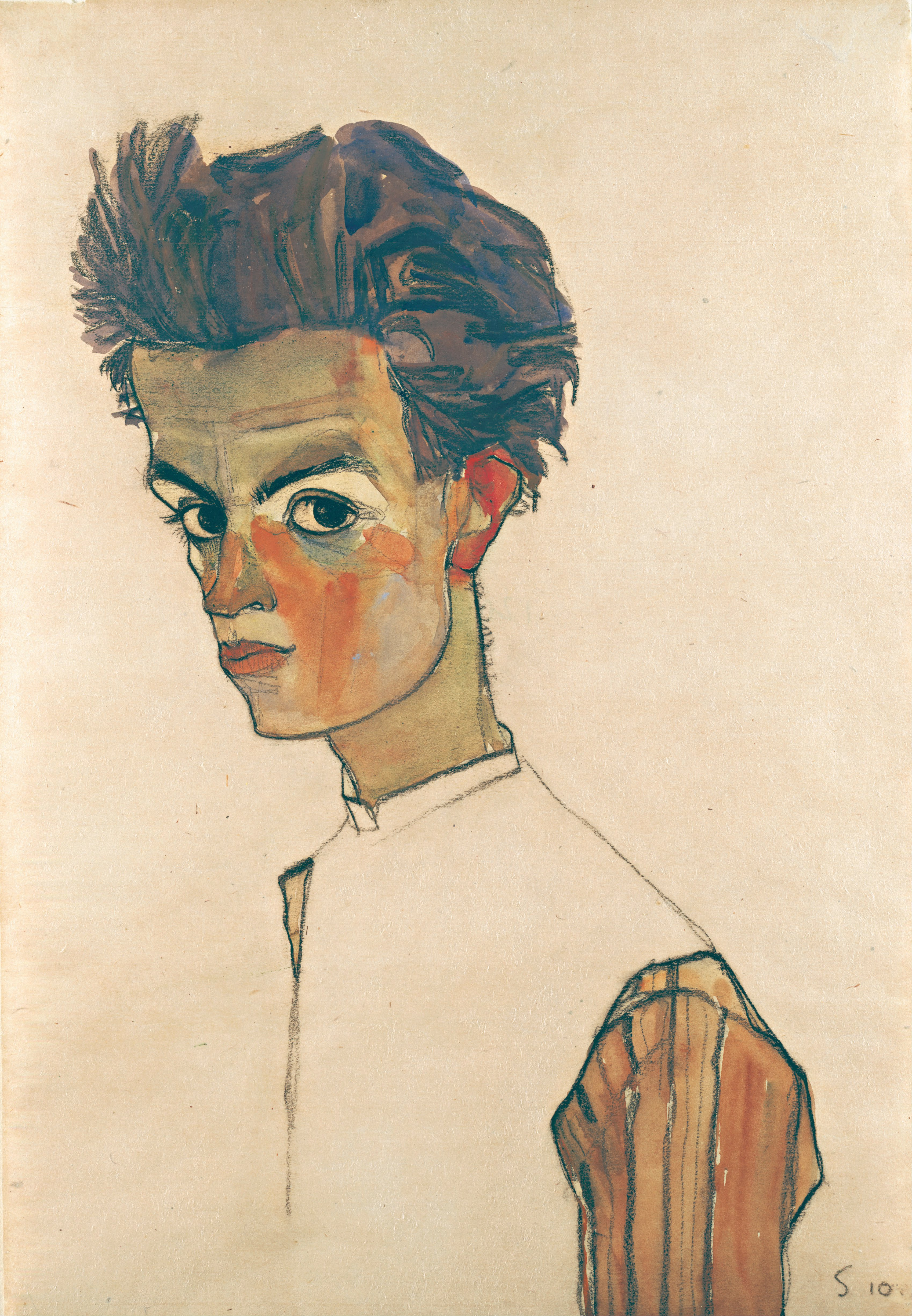Egon grew up living a provincial life in the countryside just outside of the city — his father was a train station master in Tullin. (We can encourage visitors to Tullin to take a walk, see the banks of the Danube, as well as the Schiele museum that's worthy of interest). Better than anyone, Egon would eventually transcend a country landscape portrayal — trees, sunflowers, a snowy plain, a small peaceful village, a castle, ruins — to give it another significance. His painting Four Trees, 1917, for instance, is the perfect expression of the artist’s conflict between his own morbid inspirations and the power of vital energy. His relation to nature links him, in a paradoxical fashion, to the tradition of great German Romantics.




Four Trees
oil on canvas • 110.5 x 141 cm
 Egon Schiele
Egon Schiele